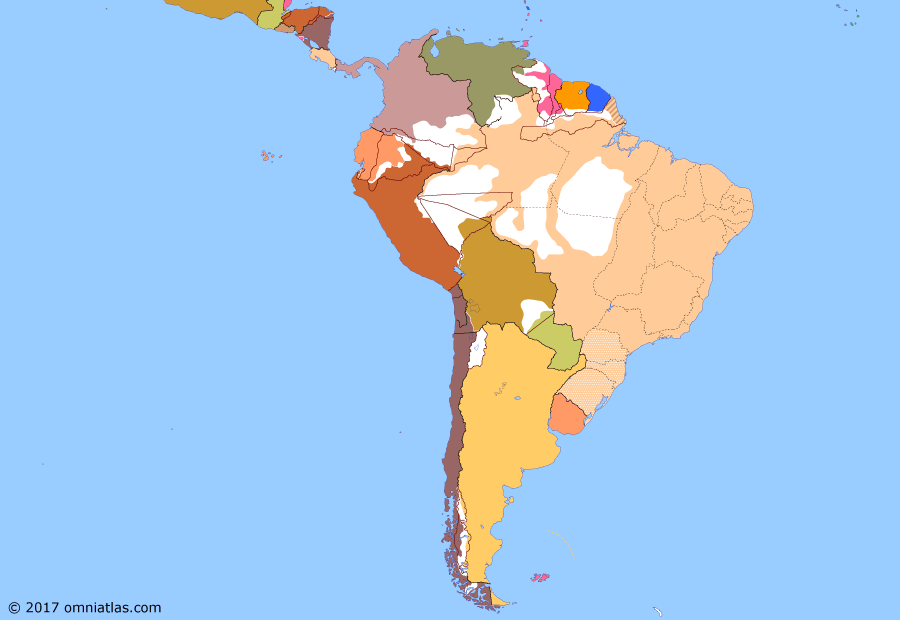South America 1895: Venezuela and Nicaragua Crises

14 May 1895
14 May 1895
Border disputes and the Powers
1864–1878 South America at War
1878–1894 Rise of the Southern Cone
1894–1939 Border disputes and the Powers
1939–pres Pax Americana
Venezuela and Nicaragua Crises
14 May 1895 Venezuela and Nicaragua Crises
14 Jul 1899 Republic of Acre
23 May 1900 Thousand Days' War
17 Jan 1903 Second Venezuela Crisis
3 Nov 1903 Panamanian Rebellion
26 Nov 1908 Rio Branco's Treaties
15 Aug 1914 Opening of the Panama Canal
19 Jul 1918 South America in the Great War
24 Mar 1922 Salomón–Lozano Treaty
24 Oct 1930 Vargas Revolution
4 Jul 1933 Chaco War
15 Apr 1935 Paraguayan Chaco Offensive
In 1894 Nicaragua annexed the Mosquito Reserve, violating a previous treaty with Britain. In response, the British occupied Corinto in an attempt to pressure Nicaragua to pay an indemnity. Meanwhile, Britain was also confronting Venezuela over its border with Guiana. Both disputes angered the United States, which insisted on its right to act as arbitrator under the Monroe Doctrine, and eventually the British backed down.